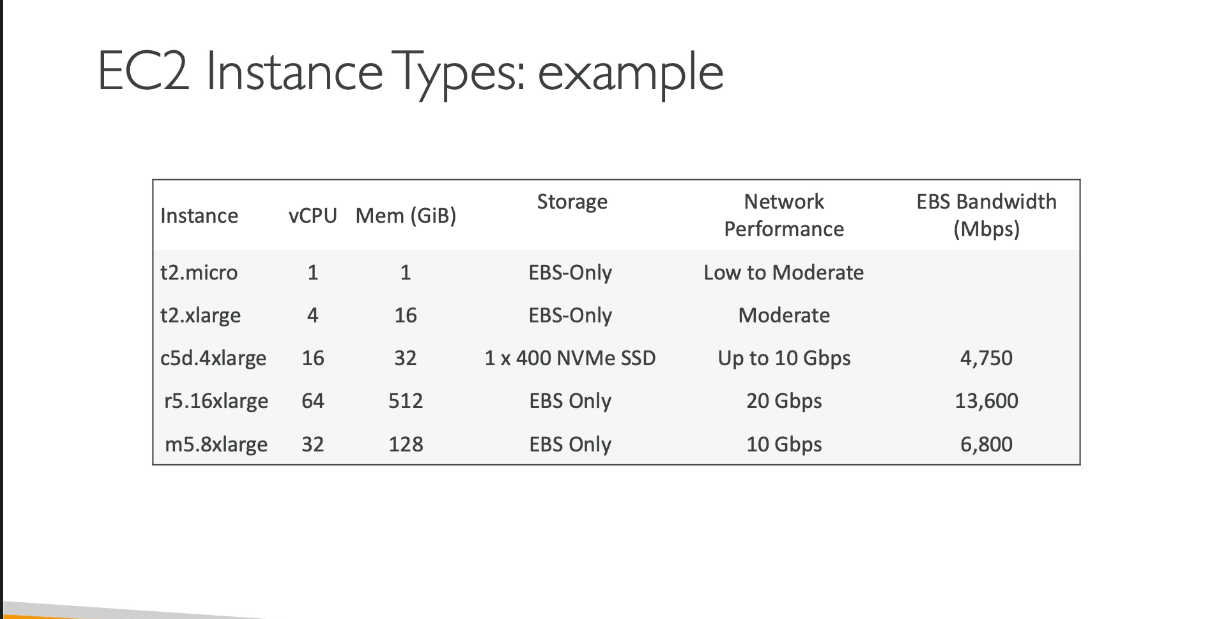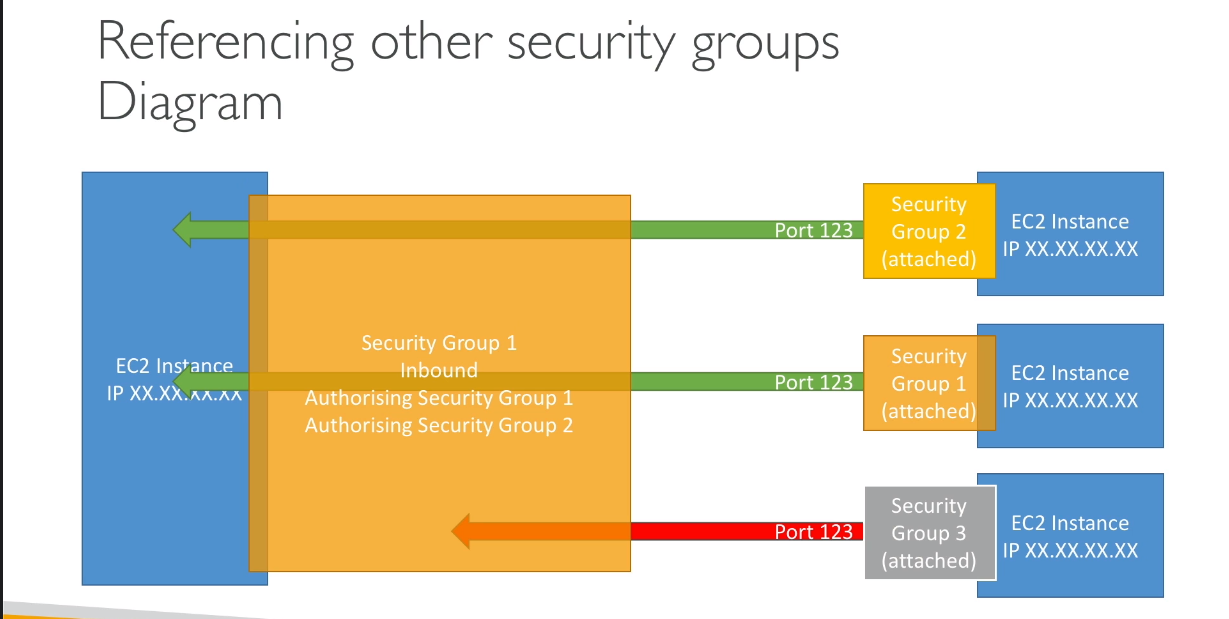EC2 Fundamentals
caution
Before Starting EC2, create a budget plan from Bill and Cost management
- Regional Service
- EC2 (Elastic Compute Cloud) is an Infrastructure as a Service (IaaS)
- Stopping & Starting an instance may change its public IP but not its private IP
- AWS Compute Optimizer recommends optimal AWS Compute resources for your workloads
- There is a vCPU-based On-Demand Instance soft limit per region
User Data
- Some commands that run when the instance is launched for the first time (doesn't execute for subsequent runs)
- Used to automate dynamic boot tasks (that cannot be done using AMIs)
- Installing updates
- Installing software
- Downloading common files from the internet
- Runs with the root user privilege
Instance Classes
- General Purpose
- Great for a diversity of workloads such as web servers or code repositories
- Balance between compute, memory & networking
- Compute Optimized
- Great for compute intensive tasks
- Batch Processing
- Media Transcoding
- HPC
- Gaming Servers
- Great for compute intensive tasks
- Memory Optimized
- Great for in-memory databases or distributed web caches
- Storage Optimized
- Great for storage intensive tasks (accessing local databases)
- OLTP systems
- Distributed File System (DFS)
- Great for storage intensive tasks (accessing local databases)
note
Other type of instances may exist buth only the most important once have been discussed here

Security Groups
- Only contain Allow rules
- External firewall for EC2 instances (if a request is blocked by SG, instance will never know)
- Security groups rules can reference a resource by IP or Security Group
- Default SG
- inbound traffic from the same SG is allowed
- all outbound traffic is allowed
- New SG
- all inbound traffic is blocked
- all outbound traffic is allowed
- A security group can be attached to multiple instances and vice versa

note
Using this we can communicate with new instances without mapping with IPs (in Load Balancing)
- Bound to a VPC (and hence to a region)
- Recommended to maintain a separate security group for SSH access
- Blocked requests will give a Time Out error
SSH
Using SSH we can connect out ec2 instance.
Steps to connect:
- Create a key pair.
- you can create key pair while creating instance or later create it from Network & Security section and download it.
- Check security group has rule for SSH. It not then add a new rule for SSH source should 0.0.0.0/0.
- locate .pem file give to permission using
sudo chmod 400 <your_file_name>.pem - Run this to connect EC2:
ssh -i "<your_file_name>.pem" <user>@<public_ip>
IAM Roles for EC2 instances
caution
Never enter AWS credentials into the EC2 instance, instead attach IAM Roles to the instances
tip
Create a AWS role (SSMRole) which use existing policy AmazonSSMManagedInstanceCore
Purchasing Options
On-demand Instances
- Pay per use (no upfront payment)
- Highest cost
- No long-term commitment
- Recommended for short-term, uninterrupted and unpredictable workloads
Standard Reserved Instances
- Reservation Period: 1 year or 3 years
- Recommended for steady-state applications (like database)
- Sell unused instances on the Reserved Instance Marketplace
Convertible Reserved Instances
- Can change the instance type
- Lower discount
- Cannot sell unused instances on the Reserved Instance Marketplace
Scheduled Reserved Instances
- reserved for a time window (ex. everyday from 9AM to 5PM)
Spot Instances
- Work on a bidding basis where you are willing to pay a specific max hourly rate for the instance. Your instance can terminate if the spot price increases.
- Spot blocks are designed not to be interrupted
- Good for workloads that are resilient to failure
- Distributed jobs (resilient if some nodes go down)
- Batch jobs
Dedicated Hosts
- Server hardware is allocated to a specific company (not shared with other companies)
- 3 year reservation period
- Billed per host
- Useful for software that have BYOL (Bring Your Own License) or for companies that have strong regulatory or compliance needs
Dedicated Instances
- Dedicated hardware
- Billed per instance
- No control over instance placement
On-Demand Capacity Reservations
- Ensure you have the available capacity in an AZ to launch EC2 instances when needed
- Can reserve for a recurring schedule (ex. everyday from 9AM to 5PM)
- No need for 1 or 3-year commitment (independent of billing discounts)
- Need to specify the following to create capacity reservation: - AZ - Number of instances - Instance attributes
Examples
Connect to EC2 using ssh key
- generate ssh key
ssh-keygen -t rsa -f ec2_connect
this will create a ec2_connect file
- Check aws instance
aws ec2 describe-instances --region ap-south-1
- Send ssh key to instance
aws ec2-instance-connect send-ssh-public-key \
--instance-id i-012637e47ba8c98d7 \
--instance-os-user ec2-user \
--availability-zone ap-south-1a \
--ssh-public-key file://ec2_connect.pub \
--region ap-south-1
- Give permission to ec2connect file
chmod 400 ec2_connect
- Connect with ssh
ssh -i ec2_connect ec2-user@<ip>